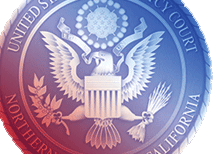(a) No Order Required: Payment of Expenses Up to an Aggregate of $25,000 That Are Inherent in the Appointment of a Chapter 7 Trustee.
A Chapter 7 trustee may, during the course of a chapter 7 case, without further authorization from the court and subject to final authorization upon consideration of the Trustee’s Final Report, disburse amounts aggregating up to $25,000 from estate funds to pay actual and necessary expenses of the estate arising in the ordinary course of administering the estate (“Authorized Disbursal”), including but not limited to such expenses as:
(1) Moving, storage, or preservation of estate assets;
(2) Bank charges for research or copies;
(3) Court reporting fees;
(4) Filing and process serving;
(5) Notary fees;
(6) Recording fees;
(7) Deposition/transcript fees;
(8) Witness fees;
(9) Locate and move assets;
(10) CA Franchise Tax Board annual tax;
(11) Locksmith;
(12) Security services to safeguard debtor’s real or personal property;
(13) Utilities;
(14) Expenses related to the preparation of real property for sale, such as hauling and cleaning expenses;
(15) Costs to advertise sale;
(16) Insurance;
(17) Rent;
(18) Obligations to taxing agencies arising under 11 U.S.C. § 507(a)(2), provided the estate is and is likely to remain administratively solvent; and
(19) Obligations to taxing agencies arising under 11 U.S.C. § 503(b)(1)(B), but not preconversion tax obligation;
(20) Bond premiums required by 11 U.S.C. § 322(a); and
(21) Charges for storage of the debtor’s records to prevent the destruction of those records and related necessary cartage costs.
All disbursements made by the trustee pursuant to this rule must be disclosed in the Trustee’s Final Report. Applications for fees or costs filed by the trustee and by paraprofessionals employed in the case by the trustee must disclose disbursements made pursuant to this rule for which reimbursement from the estate is requested.
(b) Emergency Expenses.
The trustee may exceed the Authorized Disbursal amount to pay emergency expenses, without prior court approval, to protect assets of the estate that might otherwise be lost or destroyed. If the trustee disburses more than the amounts contemplated as an Authorized Disbursal to pay emergency expenses and other expenses for which an Authorized Disbursal may be used, the trustee shall promptly file and serve a motion for approval after such expenses are paid.
(c) Nonexclusive Remedy.
Nothing in this rule precludes the trustee from seeking court approval to disburse estate funds by way of a noticed motion filed and served pursuant to BLR 9014-1, and as needed, subject to a request for an order shortening time.



